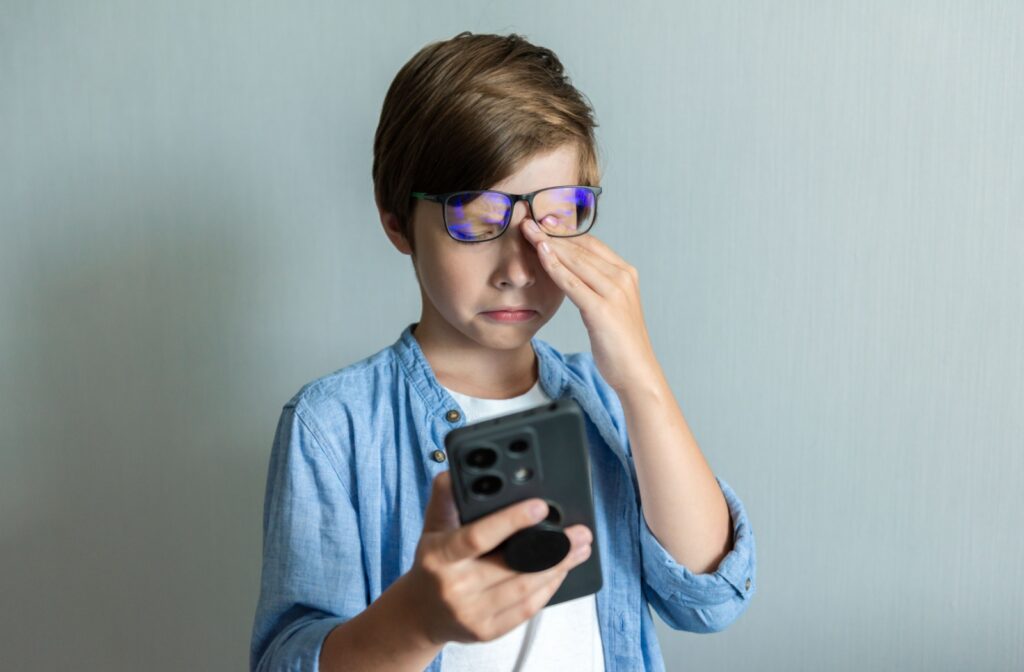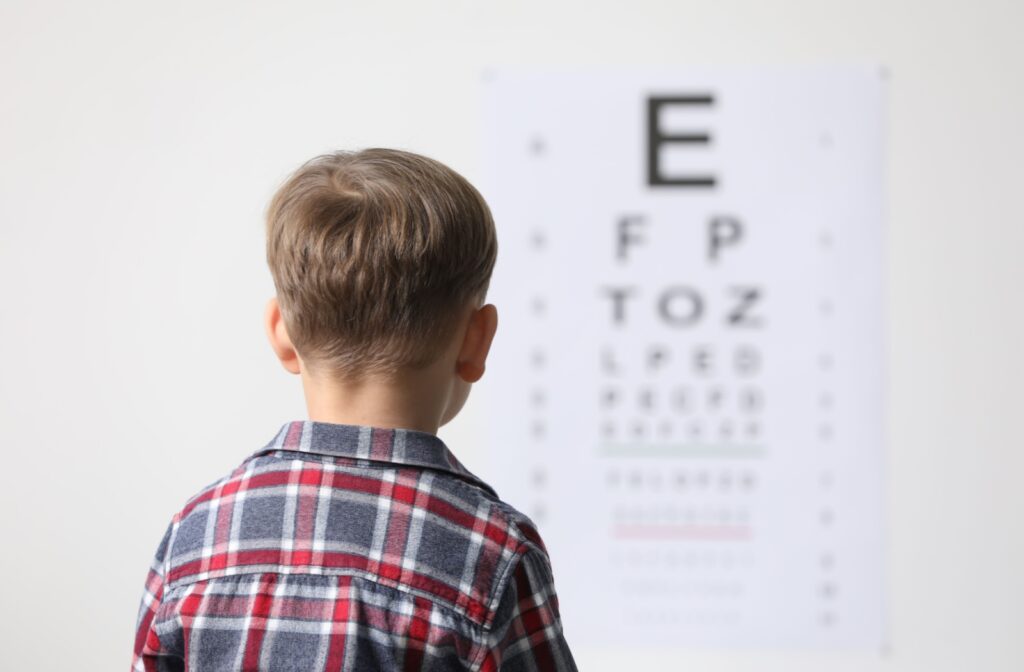If you or your child has myopia, you may be wondering if there’s a way to reverse it. It’s a very common question, and understanding your options is the first step toward protecting your long-term vision.
While the blurry distance vision caused by myopia can be corrected, the condition itself cannot be reversed or cured. However, with today’s modern treatments, we can slow its progression, especially in children, and that can make a big difference for their future eye health.
What Is Myopia?
Myopia, also known as nearsightedness, is a condition where distant objects appear blurry, while close-up vision stays clear. It happens when the eye grows too long from front to back, or when the cornea is too curved. As a result, light focuses in front of the retina instead of directly on it.
Can Myopia Be Cured or Reversed?
In short: No, myopia cannot be reversed. Because it’s tied to the eye’s physical shape, the structural changes can’t be undone. Once the eye has grown longer, it doesn’t shrink back.
But here’s the good news:
- Myopia can be managed with glasses, contacts, or atropine eye drops
- Its progression can often be slowed down, especially in growing children
This approach is known as myopia management.
Common Myths About Myopia Reversal
There’s a lot of misinformation online. Let’s clear up a few persistent myths:
Eye Exercises
Exercises like “eye yoga” or muscle training won’t shorten the eye’s length. While exercises can help with focusing or eye-teaming issues, they don’t reverse myopia.
Vitamins & Supplements
A healthy diet supports general eye health, but no supplement has been proven to reverse myopia. Vitamins can help with other conditions (like macular degeneration), but not with the physical shape of the eye.
Pressing On Your Eyes
Some believe that pressing or massaging the eyes can “fix” nearsightedness. This is not only ineffective, but it can be dangerous, increasing pressure inside the eye and risking damage to delicate structures.
Why Myopia Is on the Rise
Myopia is becoming more common around the world—and our modern lifestyle plays a big role.
More Time On Screens
We’re spending more time focusing on close-up tasks—phones, tablets, laptops, books. This contributes to both myopia development and digital eye strain, especially in children whose eyes are still growing.

Less Time Outdoors
Research shows that children who spend more time outdoors are less likely to develop myopia. Natural light and long-distance focusing help protect growing eyes. Aim for 90 minutes to 2 hours of outdoor time per day.
Managing Myopia Effectively
While we can’t reverse it, we can manage myopia, and that’s the best way to protect your vision or your child’s vision for the long term.
Myopia Control Glasses & Contact Lenses
These lenses use innovative designs that correct central vision while creating gentle peripheral defocus. This helps signal the eye to slow down its elongation. Studies show they can slow progression by 50–60% in many children.
Orthokeratology (Overnight Contact Lenses)
Ortho-k lenses gently reshape the front of the eye while your child sleeps. In the morning, they can often see clearly all day, without wearing glasses. Ortho-k also helps reduce myopia progression.
Atropine Eye Drops
Low-dose atropine drops (between 0.01% and 0.05%) are used at night to help slow eye growth. They’re safe and effective when used under the guidance of your optometrist, and your child can continue wearing regular glasses or contacts during the day.
Adopt Healthy Vision Habits
Certain lifestyle changes can help support better eye health:
- Get outside: Aim for 90–120 minutes of outdoor play each day
- Take breaks: Follow the 20-20-20 rule (every 20 minutes, look at something 20 feet away for 20 seconds)
- Keep your distance: Hold screens and books about 30–40 cm from your face
These habits are easy to start and can help protect your or your child’s vision over time.
Why Myopia Management Matters
Uncontrolled myopia can lead to high myopia, which increases the risk of serious eye conditions later in life, including:
- Retinal detachment
- Glaucoma
- Cataracts
- Myopic macular degeneration
By managing myopia early, you’re taking steps to reduce these risks and preserve long-term vision.
Take the Next Step with Myopia Management
At Lowy & Sewell Eye Care in Vaughan, our optometrists offer evidence-based myopia management plans tailored to each child’s needs. Whether it’s lenses, drops, or lifestyle changes, we’ll walk with you every step of the way. If you have questions about myopia or are ready to create a plan to protect your child’s vision, book an eye exam with our team today. Let’s take a proactive approach—because seeing clearly now is only part of the picture.



